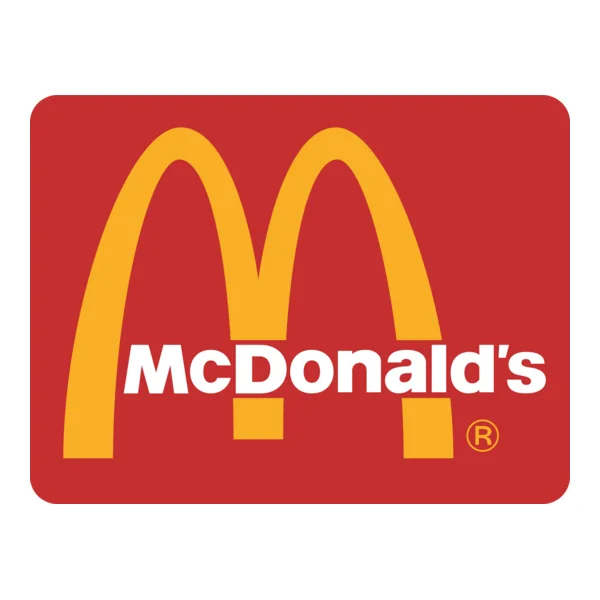McDonald's Monopoly is Over: The Official End Date and What We Actually Know
So, I’m scrolling through the news feed, and what do I see? McDonald’s is making headlines for two things that perfectly capture the absolute absurdity of modern American capitalism. First, the U.S. Treasury finally admitted the penny is a useless piece of metal that costs more to make than it’s worth, and McDonald's response is to... round your cash total up or down. Groundbreaking. Second, the digital Skinner box known as the Monopoly mcdonald's game is wrapping up.
Let's be real. Nobody is shocked by any of this. It’s just another Tuesday in the late-stage-capitalism theme park we all live in. But when you put these stories side-by-side with another one I stumbled on, you start to see the ghost in the machine. Or maybe, the machine that ate the ghost.
The Soulless Machine Grinds On
First, the penny. The government kills it, and McDonald’s, the titan of industry, rolls out a solution. Their PR team, probably after a dozen venti lattes, releases a statement about how they’re “actively working on long-term solutions to keep things simple and fair for customers.”
Let me translate that for you: “We’re rounding your bill because counting change is a pain, and this gives us another reason to push you onto the mcdonald's app, where we can track your every move.” This isn't about convenience. It’s about friction. They want using cash to be just annoying enough that you give up and scan your phone like a good little data point. Who eats the cost when they round down? Who pockets the difference when they round up? Do you seriously think it doesn't all wash out in their favor in the end? Give me a break.
Then there’s the mcdonald's monopoly game. It's not a game. No, "game" doesn't cover it—this is a masterclass in behavioral engineering. They took a beloved, tangible promotion and welded it to their app. Now, instead of peeling a little sticker, you’re scanning QR codes and tapping on “digital game pieces.” It's a slot machine disguised as a sweepstakes. Each scan, each "digital peel," is another pull of the lever, feeding their algorithm more information about what you buy, when you buy it, and how often you can be lured back for another hit of dopamine. Winning a free McFlurry is just the cheese in the mousetrap. The real prize is your data profile, sold to the highest bidder.
I can just picture the meeting room. A bunch of guys in identical navy blazers, staring at a PowerPoint slide titled "Synergizing Customer Engagement Through Gamified Digital Touchpoints." The air probably smells of stale coffee and desperation. And they wonder why nobody trusts corporations anymore...

Then You Read a Story Like This...
Just when my cynicism is about to achieve critical mass, I read about Richard and Celia Acosta in San Antonio. Fifty years ago, in 1975, they scraped together everything they had, got turned down by seven banks, and finally secured a loan to open their first McDonald's franchise.
This wasn't some Ivy League MBA parachuting in with a trust fund. This was a kid from the barrio, a guy a high school counselor told wasn't "college material," who built an empire of 62 restaurants. You read about them praying in the office basement when they were on the verge of bankruptcy. You read about them personally going to war with a competing Burger King by selling 99-cent Big Macs until the other guy folded. Can you even imagine that happening today? A franchisee launching a price war without a dozen memos from corporate? Offcourse not.
They invented menu items like the Homestyle Burger and the deluxe breakfast platter—things born from a need to compete on the ground, not from a test kitchen in Illinois. During COVID, when the world was shutting down, the Acostas made a promise: they wouldn't lay off a single one of their 5,000 employees. They didn't just keep them on the payroll; they gave every employee a free meal during their shift and two more to take home to their families.
I mean, read that again. While the corporate entity was figuring out how to optimize its app for data harvesting, a family in Texas was making sure its people could eat.
It forces you to ask a pretty uncomfortable question. Is a story like the Acostas' even possible anymore? Could a young couple today, with that same fire and grit, even get in the door? Or would the algorithm that vets franchisee applications flag them as too high-risk? Would they be told their vision doesn't align with the company's forward-facing digital strategy? Then again, maybe I'm the crazy one for even thinking the system should still have room for people like that.
So Which McDonald's Is Real?
At the end of the day, you're left with this bizarre corporate split personality. There’s the McDonald's of the Acosta family—a story of grit, community, and the kind of old-school American dream that feels like a black-and-white photo. And then there's the McDonald's of today's headlines—a faceless, data-hungry machine that sees you not as a customer, but as a user to be monetized. One is a restaurant. The other is a tech company that happens to sell burgers. I know which one I'd rather buy a Happy Meal from, but I'm pretty sure I know which one is winning.
Tags: mcdonald's
Gold Prices Tumble: What the Numbers Actually Say
Next PostJohn Vincent's World Series Anthem: Explaining the Singer Everyone Had to Google
Related Articles
